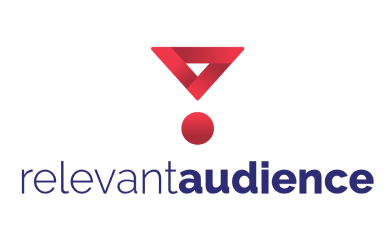How to use content marketing to boost your SEO
Content marketing comprises all activities relating to creating and sharing relevant information. Content marketing is fundamental to SEO, and it’s also central to effective branding. Sharing valuable and engaging communication is a productive way to attract a relevant audience and demonstrate your brand’s thought leadership in your area.
When marketers consider their primary content goals in terms of SEO, they may set the objective of being found on the first page of the search results. However, something more important than this is being found for keywords that are relevant to your business.
Ranking for relevant searches your target audience is conducting does not come from keyword stuffing or focusing on keyword density. The key to success is creating quality content that your target audiences will be highly engaged with, and then search engines will recognize the content as authoritative.
This article will explain what content marketing is, why it is important for SEO, and how your brand can take steps to improve your content marketing for SEO.
What is content marketing for SEO?
Content marketing is the exercise of sharing valuable and relevant content with your target audience. This content usually aims to help your audience solve their problems or engage more with a topic of interest to them. If your audience benefits from your information, it has value, and your brand will be viewed as a thought leader in your area of work. People will buy your products or services if you can use content marketing effectively enough to be positioned as a leader. If you can sustain this, they will also continue to buy.
Here are some content strategies that your brand can use to gain SEO success from your content.
Content marketing strategies
Understand what users are looking for
User intent relates to your audience’s goal or intention when searching on Google or any other search engine.
Here are four areas of user intent that relate to different types of content or services that your target audience may be looking for:
- Informational: Users searching for information; an example could be looking for an answer to a particular question.
- Navigational: People browsing a specific website.
- Commercial: Users researching a specific product or service.
- Transactional: People who are at the stage of looking for products or services to purchase.
Keyword analysis plays a critical role in your content marketing at this stage. If you can understand what your target audiences are looking for, you can serve them with the appropriate content.
Analyzing keyword data to discover user intent involves looking at the data more deeply than just search volume. Effective analysis involves conducting a deep analysis of the content types the target keywords and phrases generate in the search results and exploring what your target audiences want to achieve from these searches.
Focus on quality over quantity
This may sound cliché, but it certainly applies to content marketing. Google and your target audience do not want to see endless pages containing useless information.
Once you have developed quality content that successfully ranks in the search results, it is also challenging to maintain that search ranking. It requires consistent, quality work.
Content analysis is critical here. Monitoring engagement metrics such as bounce rate, average time on page, and average page views, marketers can gain an insight into user behavior related to their content, particularly when analyzed together. By analyzing the data, you will understand how engaged your users are with the content, which will allow you to identify which pieces of content need to be reworked or removed.
So the critical step in content creation is not generating as many articles as possible; instead, your brand should focus on developing the quality of the content, which relates to creating well-written content with the proper structure and details that enhance user engagement.
Below are some tips to improve content quality for SEO:
- Page titles: Add target keywords strategically in the title element, focusing on primary search terms at the front. Look at competitors ranking highly in the search results to gauge ideas on how to craft your message.
- Heading tags: This tag relates to your page’s body text, so it should be specific to the information on the page.
- Internal linking: Add descriptive, keyword-rich anchor text to encourage users to visit other relevant and strategic pages on your site.
Conclusion
This article offers information about content marketing and why your brand should develop a content marketing strategy. This can help guide your content marketing to align with your SEO and overall objectives. The core role of content marketing is to provide value to your target audience. Content marketing is a long-term strategy, so as with most SEO, it may take some time to get higher up in the search rankings. However, developing a sound content marketing strategy and related processes can help build your brand and grow your business in the long term.
If you have any questions about content marketing or SEO, please feel free to contact our expert team at info@relevantaudience.com for more information.













